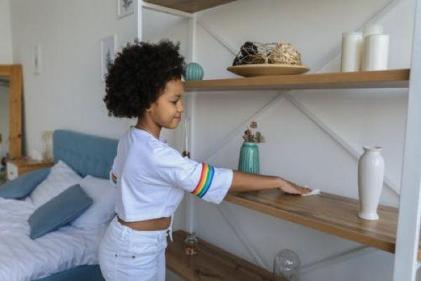You’ve probably already seen your child refusing to share. He or she probably shouts ‘no!’ loudly when a friend, or even you, try to take one of the many toys that are stacked up around your child. It can be hard for parents to understand why children can’t share, but it’s actually perfectly normal for preschoolers – especially younger ones – to be unable to think of the wants and needs of others. Even older children, who understand what sharing is, can find it difficult to wait while a friend takes a turn with a favourite toy.
On the other hand, there may be times when your child surprises you, by sharing a snack with you or someone else, and it’s those times that you want to encourage your child. One great way to make sharing fun is to play games with your preschooler where every one takes a turn, and you are all working towards a common goal. Give your child the opportunity to share, by baking a batch of cookies, for instance, and allowing him or her to distribute them to friends.
Avoid punishing your child when he or she acts selfish. Rather than encouraging sharing, you’re fostering resentment. Rather heap praise and rewards on your child when he or she does remember to share, and simply tell your child that it’s nice to share when he or she doesn’t.
Try to encourage your child to think about sharing differently. Chances are, when he or she is wrestling a friend for a toy, your child is thinking that it’s either one or the other. The idea of playing together, or taking turns, probably hasn’t even crossed your child’s mind. Try setting a timer, and giving each child an opportunity to play for a few minutes.
Make sure that you, and everyone else in your child’s life is respectful of his or her belongings. If you, your child’s caregiver or siblings simply take or use your preschoolers things, he or she is likely to guard them very jealously. By rather asking first, and allowing your child to decide whether to grant permission or not, you give your child a feeling of power – and more incentive to be generous and gracious about sharing.
As with most things, children learn the most about sharing from how you behave. So make a point of sharing your food or belongings with your child when appropriate, be generous with your partner, friends and others, and your child should pick up the sharing habit.
On the other hand, there may be times when your child surprises you, by sharing a snack with you or someone else, and it’s those times that you want to encourage your child. One great way to make sharing fun is to play games with your preschooler where every one takes a turn, and you are all working towards a common goal. Give your child the opportunity to share, by baking a batch of cookies, for instance, and allowing him or her to distribute them to friends.
Avoid punishing your child when he or she acts selfish. Rather than encouraging sharing, you’re fostering resentment. Rather heap praise and rewards on your child when he or she does remember to share, and simply tell your child that it’s nice to share when he or she doesn’t.
Try to encourage your child to think about sharing differently. Chances are, when he or she is wrestling a friend for a toy, your child is thinking that it’s either one or the other. The idea of playing together, or taking turns, probably hasn’t even crossed your child’s mind. Try setting a timer, and giving each child an opportunity to play for a few minutes.
Make sure that you, and everyone else in your child’s life is respectful of his or her belongings. If you, your child’s caregiver or siblings simply take or use your preschoolers things, he or she is likely to guard them very jealously. By rather asking first, and allowing your child to decide whether to grant permission or not, you give your child a feeling of power – and more incentive to be generous and gracious about sharing.
As with most things, children learn the most about sharing from how you behave. So make a point of sharing your food or belongings with your child when appropriate, be generous with your partner, friends and others, and your child should pick up the sharing habit.



